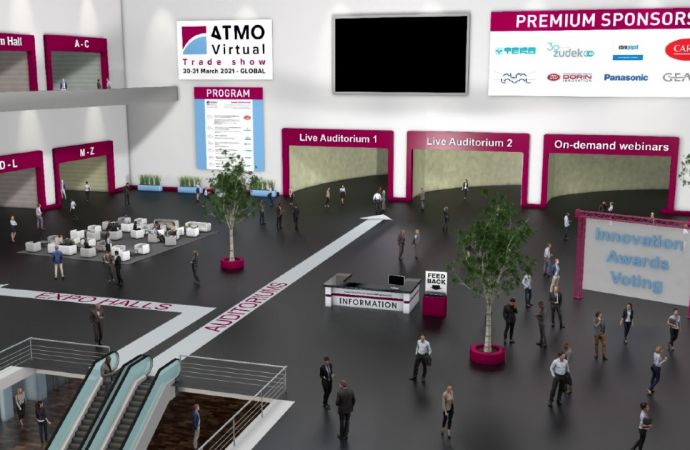Six of the world’s leading consumer brands have met to discuss latest progress in using natural refrigerants in point-of-sale cooling applications. All agreed that hydrocarbons, CO2 or ammonia would be the way forward, calling on others to join their efforts.

The event Monday evening brought together representatives from some of the world’s most renowned retail and consumer brands, united in the “Refrigerants, Naturally!” (RN) initiative. During the workshop, held within the framework of the Gustav Lorentzen Conference on Natural Working Fluids, The Coca-Cola Company (TCCC), PepsiCo, McDonalds, IKEA, Unilever, and Carlsberg reconfirmed their commitment to promote natural refrigerants. More than 100 participants attended the highly popular event summarizing the technical and commercial state of play in the field of non-HFCs cooling technologies.
Chairing the session, John Gummer, former UK Environment Secretary, highlighted the power of sustainable partnership between business, NGOs and the United Nations, demonstrated in the RN project: "Looking back 5 years, only few cared about refrigeration as a major source of greenhouse gas emission. Today, nobody would question climate change and the role the retail industry needs to play. The Refrigerant, Naturally! project has been a successful example of how refrigeration could be made interesting to the general public", he said.
The Presentations
Following a welcome address and Gummer’s keynote speech, all RN members and the two official sponsors Greenpeace and the United Nations Environment Programme (UNEP) provided an outlook on the future of natural refrigerants in the retail industry:
UNEP: Rajendra Shende, head of the OzonAction branch of UNEP, confirmed that the RN project has proved a success with all members still actively committed to its original targets. Being in a “constant revolution”, the refrigeration industry would now have to work on a further improvement of natural refrigerants’ energy efficiency. Most importantly, Shende warned that if current industry trends continue, HFCs’ overall contribution to global warming pollution could increase from 1.5% today to up to over 8% by 2050. F-gases could thus do as much environmental harm as all passenger cars combined today. He insisted that applying the role model of sustainable business initiatives, such as Refrigerants, Naturally!, also to other industries would be key in preventing a further increase in HFC concentrations.
Greenpeace: Alternatives to HFCs with proven energy efficiency are already available today, and “the time to shift away from F-gases has come”, Paula Tejon from Greenpeace stated. In 2009, the green NGO will therefore focus on the elimination of all HFCs, working with regulatory bodies, driving media campaigns, and helping to bring companies working with natural refrigerants together. Greenpeace’s campaign will target specifically China and the USA.
PepsiCo: Michel Saba reported on positive progress on behalf of PepsiCo. Since joining the initiative in 2006, the beverage company has developed hydrocarbons and CO2 in counter top, single door and open air coolers, as well as vending machines. Field tests have shown that systems achieve higher energy efficiency and capacity levels than R134a. So far, no technical problem has been recorded, making the use of natural refrigerants a purely “commercial issue” now. Before deciding about next steps, PepsiCo will field test 3000+ units for hydrocarbons and CO2 in 2009.
Interestingly, when Shecco spoke with participants after the event, there was a feeling that PepsiCo is progressing faster in their development of natural refrigerants than competitor Coca-Cola.
Unilever: The world largest ice cream producer Unilever has made a commitment to implement by 2005 a non-HFC purchasing policy for ice cream freezers. After investigating all alternatives, R290 (propane) has been chosen as a replacement in this application. Unilever had already presented a scientific paper during the Gustav Lorentzen conference updating on technical issues and its concept for a global rollout of R290a ice cream freezers. 270,000 out of 2 million units operating in the field are using hydrocarbons.
About Refrigerants, Naturally!
The Refrigerants, Naturally! Initiative was founded by TCCC, McDonalds, and Unilever in 2004. Two years later, Carlsberg, IKEA and PepsiCo joined the project to promote a shift in the point-of-sale technology towards natural refrigerants, to develop timetables to progressively replace fluorocarbons (CFCs, HCFCs, HFCs), and share technical information.
Chairing the session, John Gummer, former UK Environment Secretary, highlighted the power of sustainable partnership between business, NGOs and the United Nations, demonstrated in the RN project: "Looking back 5 years, only few cared about refrigeration as a major source of greenhouse gas emission. Today, nobody would question climate change and the role the retail industry needs to play. The Refrigerant, Naturally! project has been a successful example of how refrigeration could be made interesting to the general public", he said.
The Presentations
Following a welcome address and Gummer’s keynote speech, all RN members and the two official sponsors Greenpeace and the United Nations Environment Programme (UNEP) provided an outlook on the future of natural refrigerants in the retail industry:
UNEP: Rajendra Shende, head of the OzonAction branch of UNEP, confirmed that the RN project has proved a success with all members still actively committed to its original targets. Being in a “constant revolution”, the refrigeration industry would now have to work on a further improvement of natural refrigerants’ energy efficiency. Most importantly, Shende warned that if current industry trends continue, HFCs’ overall contribution to global warming pollution could increase from 1.5% today to up to over 8% by 2050. F-gases could thus do as much environmental harm as all passenger cars combined today. He insisted that applying the role model of sustainable business initiatives, such as Refrigerants, Naturally!, also to other industries would be key in preventing a further increase in HFC concentrations.
Greenpeace: Alternatives to HFCs with proven energy efficiency are already available today, and “the time to shift away from F-gases has come”, Paula Tejon from Greenpeace stated. In 2009, the green NGO will therefore focus on the elimination of all HFCs, working with regulatory bodies, driving media campaigns, and helping to bring companies working with natural refrigerants together. Greenpeace’s campaign will target specifically China and the USA.
PepsiCo: Michel Saba reported on positive progress on behalf of PepsiCo. Since joining the initiative in 2006, the beverage company has developed hydrocarbons and CO2 in counter top, single door and open air coolers, as well as vending machines. Field tests have shown that systems achieve higher energy efficiency and capacity levels than R134a. So far, no technical problem has been recorded, making the use of natural refrigerants a purely “commercial issue” now. Before deciding about next steps, PepsiCo will field test 3000+ units for hydrocarbons and CO2 in 2009.
Interestingly, when Shecco spoke with participants after the event, there was a feeling that PepsiCo is progressing faster in their development of natural refrigerants than competitor Coca-Cola.
Unilever: The world largest ice cream producer Unilever has made a commitment to implement by 2005 a non-HFC purchasing policy for ice cream freezers. After investigating all alternatives, R290 (propane) has been chosen as a replacement in this application. Unilever had already presented a scientific paper during the Gustav Lorentzen conference updating on technical issues and its concept for a global rollout of R290a ice cream freezers. 270,000 out of 2 million units operating in the field are using hydrocarbons.
About Refrigerants, Naturally!
The Refrigerants, Naturally! Initiative was founded by TCCC, McDonalds, and Unilever in 2004. Two years later, Carlsberg, IKEA and PepsiCo joined the project to promote a shift in the point-of-sale technology towards natural refrigerants, to develop timetables to progressively replace fluorocarbons (CFCs, HCFCs, HFCs), and share technical information.
MORE INFORMATION
Related stories



